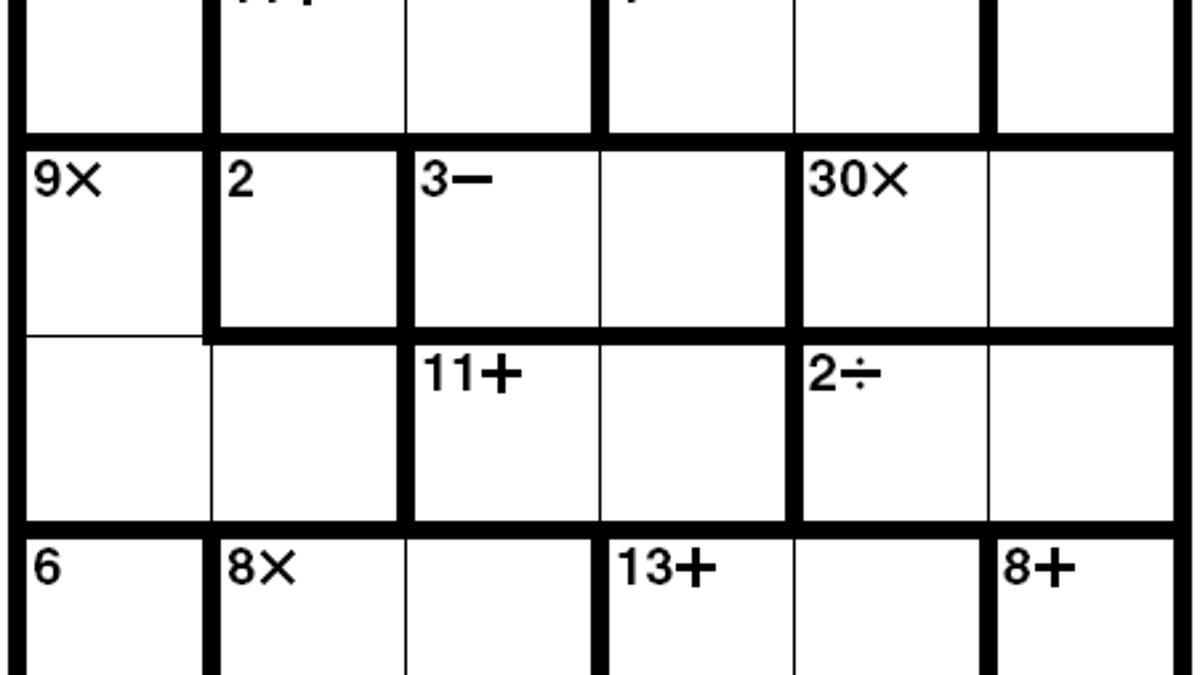Sudoku fans: Try these gnarly KenKen puzzles
<i>The New York Times</i> offers modest-sized KenKen puzzles, but Sudoku fans looking for a larger-scale challenge now have a new online option.
Sudoku can get pretty tough. But if you're looking for fresh pastures, KenKen puzzles offer a new challenge.
The only problem for me: The New York Times' online KenKen site offers only 6x6 puzzles.
However, Nextoy, the company that distributes KenKen puzzles outside Japan, has spruced up its official KenKen Web site with considerably larger sizes--7x7, 8x8, and 9x9. The sites use the same Flash-based interface as The New York Times' puzzles, which NextToy supplies.
Nextoy President Robert Fuhrer said the puzzles are updated daily. For now, each is of medium difficulty, though larger puzzles are harder in general.
If you're not familiar with the puzzles, I wrote a KenKen introduction earlier this month. Basically, they have some similarities to Sudoku, but require basic math as well as logic. I find them to be a better-rounded challenge than either Sudoku or Kakuro.


